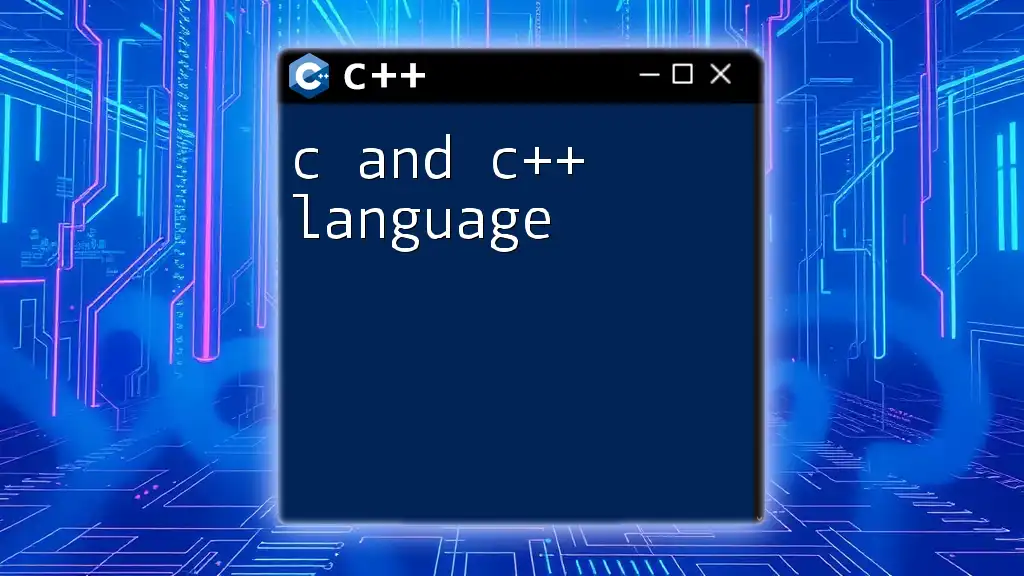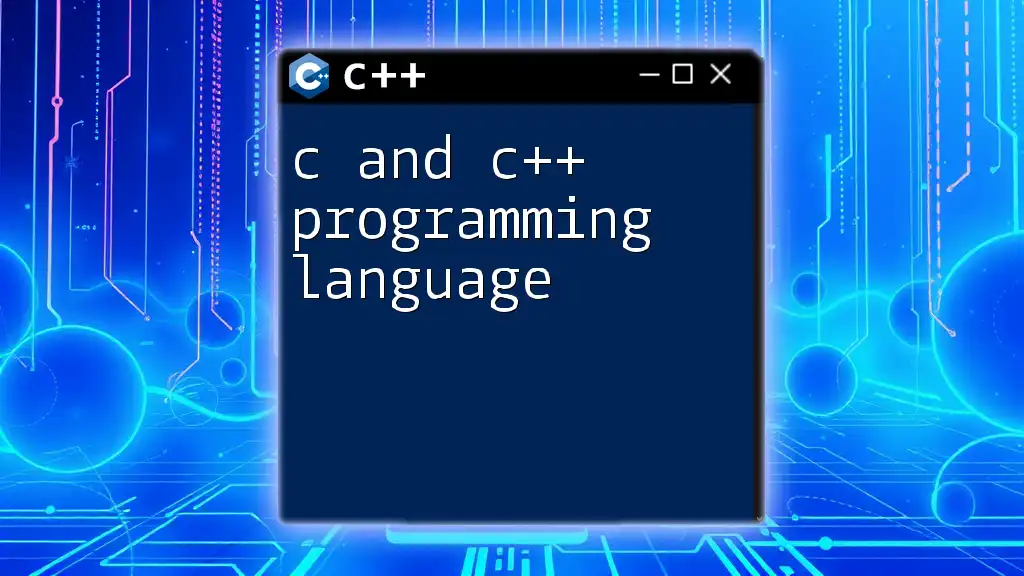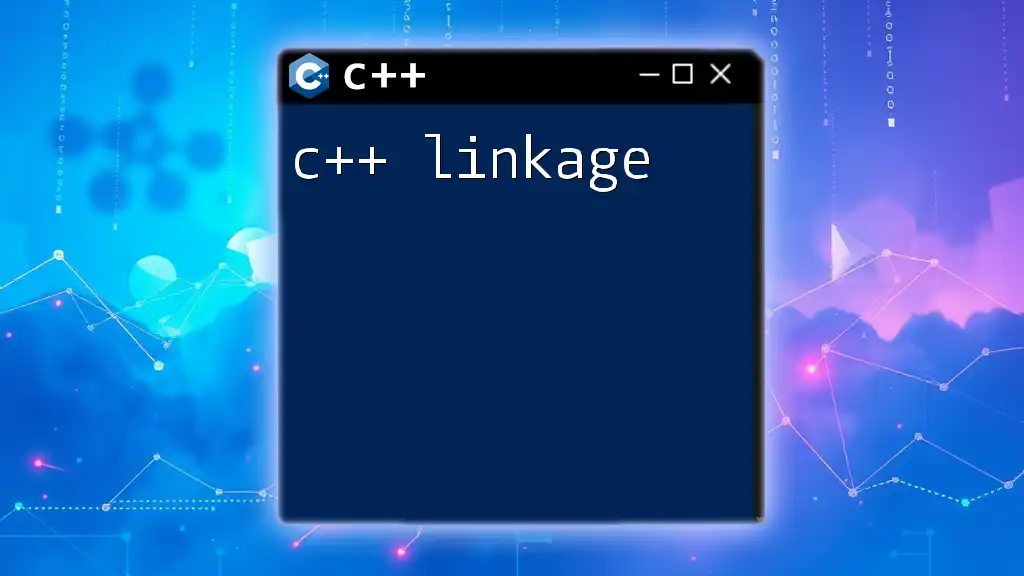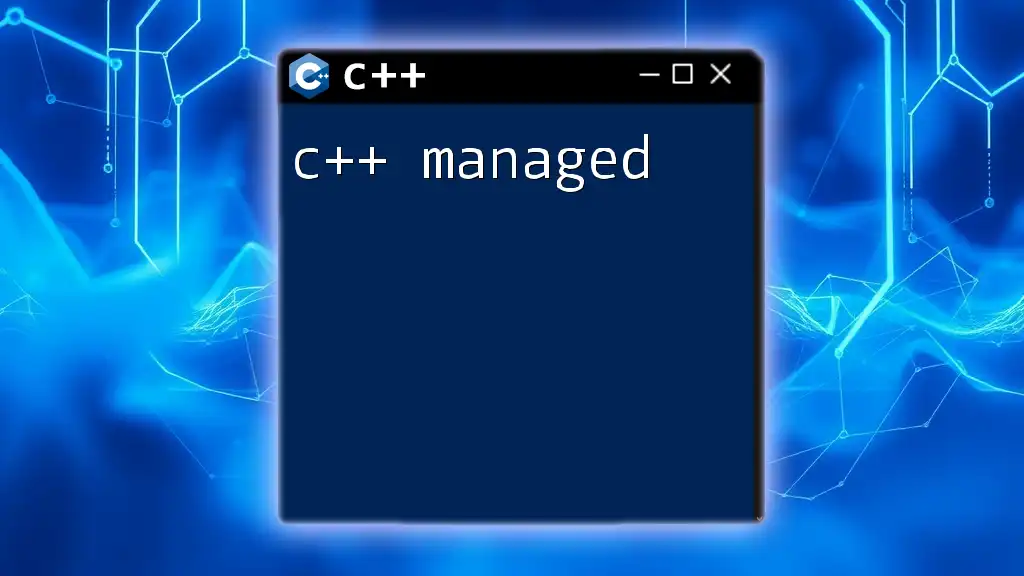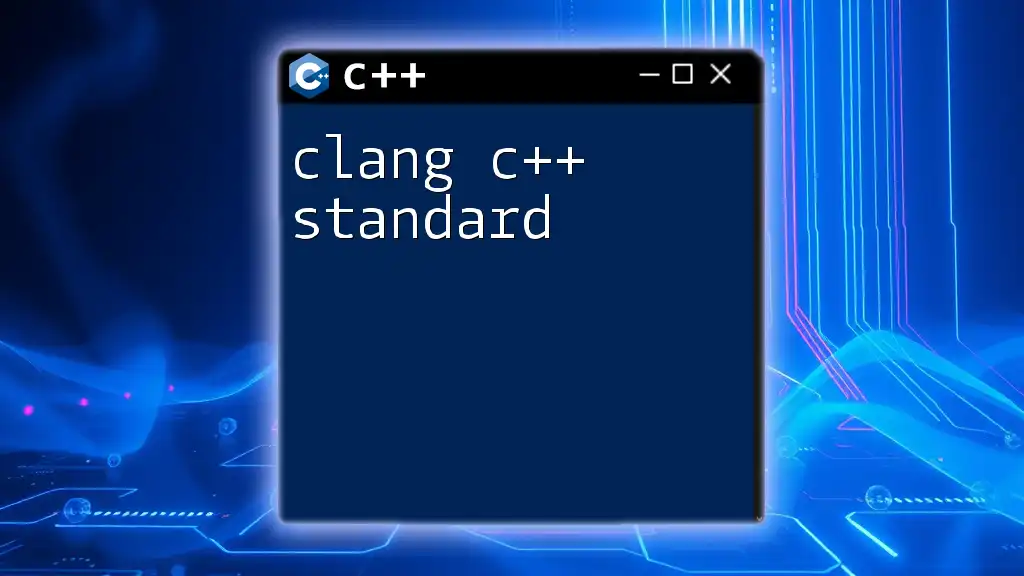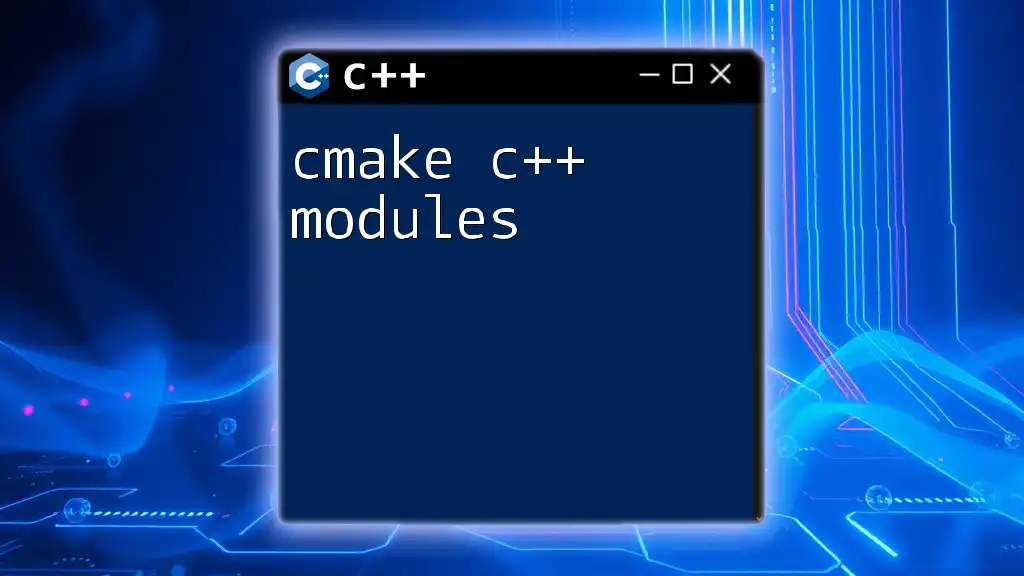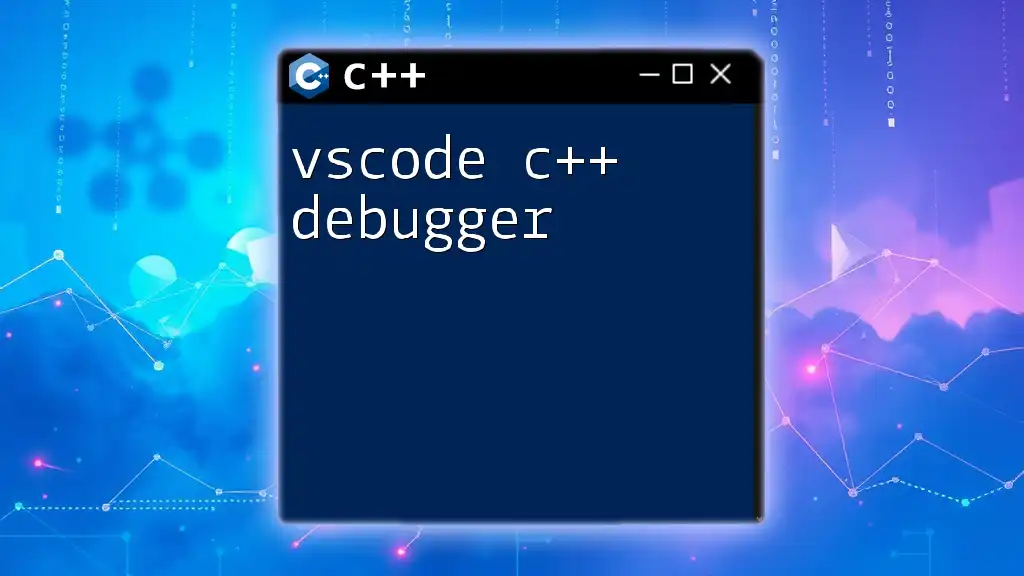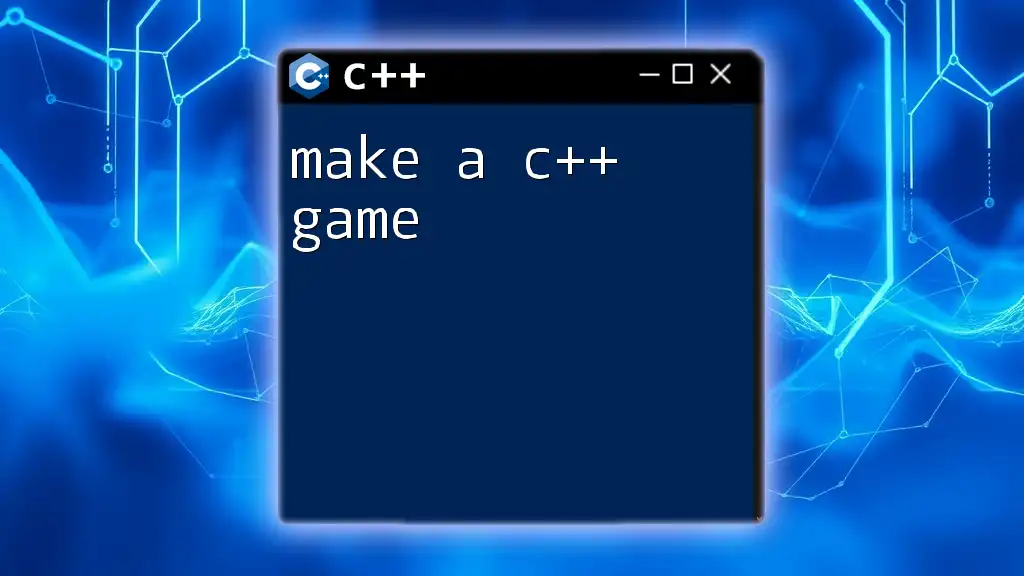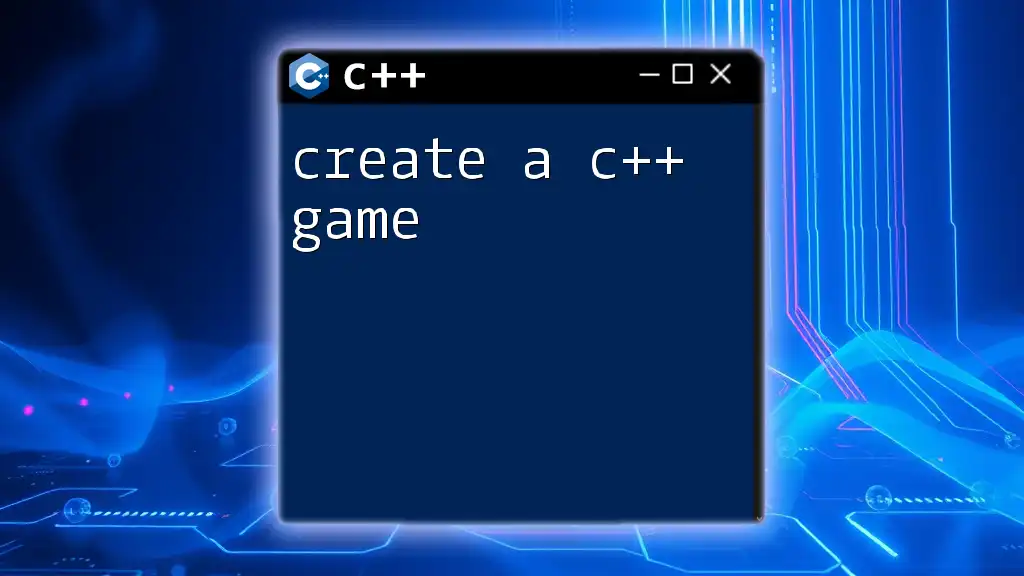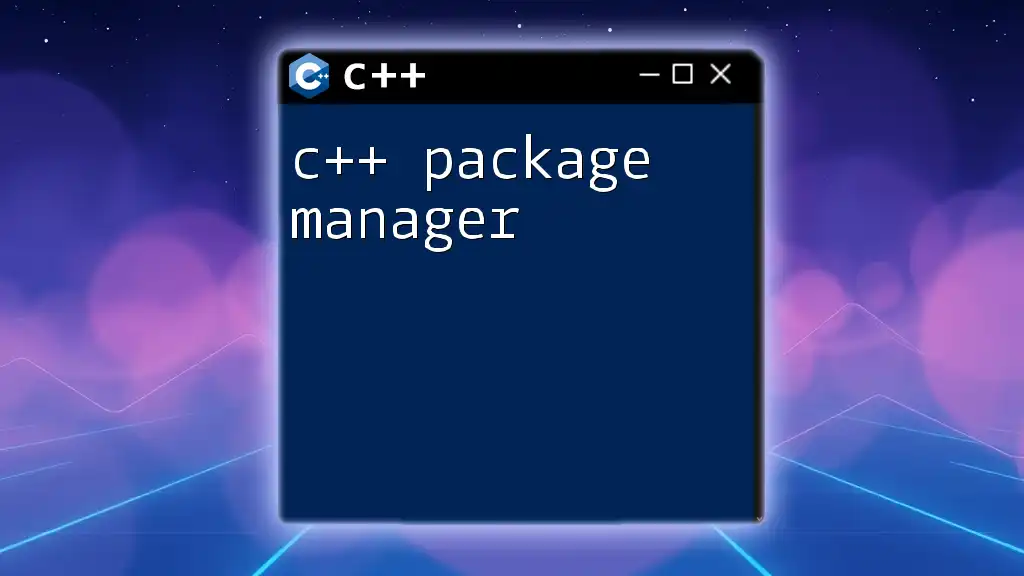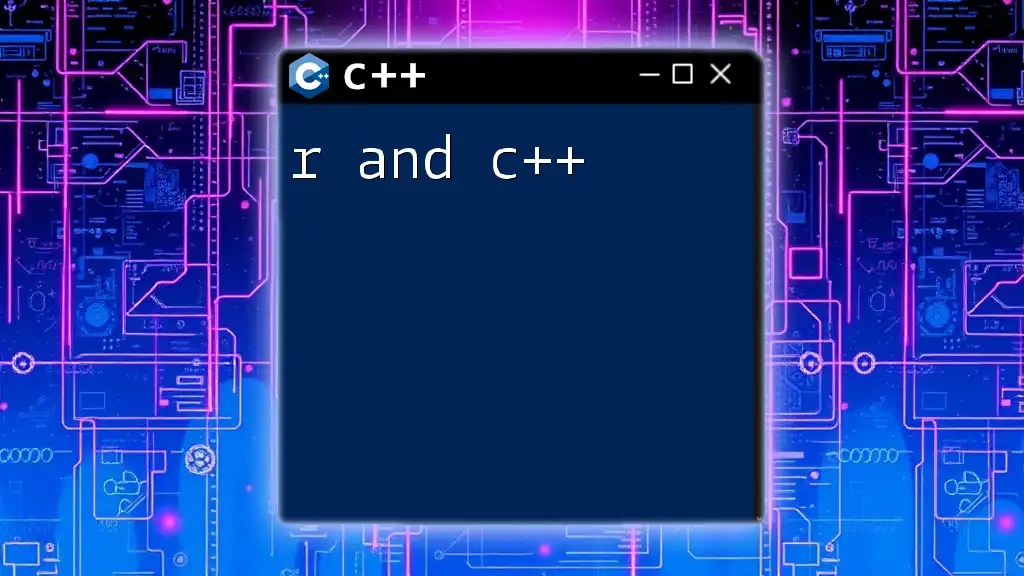C and C++ are powerful and widely-used programming languages that provide developers with a strong foundation for system programming and application development, offering low-level memory access and high-performance capabilities.
Here's a simple example of a C++ program that prints "Hello, World!" to the console:
#include <iostream>
int main() {
std::cout << "Hello, World!" << std::endl;
return 0;
}
History of C and C++
Development of C
The C language emerged in the late 1960s as a refinements to earlier programming languages like BCPL and B. Developed by Dennis Ritchie at Bell Labs in 1972, C was designed to provide low-level access to memory, making it widely adopted for system programming.
C's influence on computing cannot be understated, especially in the context of the UNIX operating system, which was largely written in C. This allowed for system-level programming, utility programs, and even application development, solidifying C's position as one of the foundational languages in modern computing.
Development of C++
In the early 1980s, Bjarne Stroustrup set out to extend C to include additional features for object-oriented programming (OOP), resulting in the birth of C++. The goal was to combine low-level programming capabilities with high-level abstraction features. In 1983, C++ was formally introduced, incorporating fundamental principles of OOP such as:
- Encapsulation: Combining data and functions that manipulate that data within classes.
- Inheritance: Allowing one class to inherit properties and behaviors from another, promoting code reuse.
- Polymorphism: The ability to treat objects of different classes that share the same interface as if they were objects of a single class.
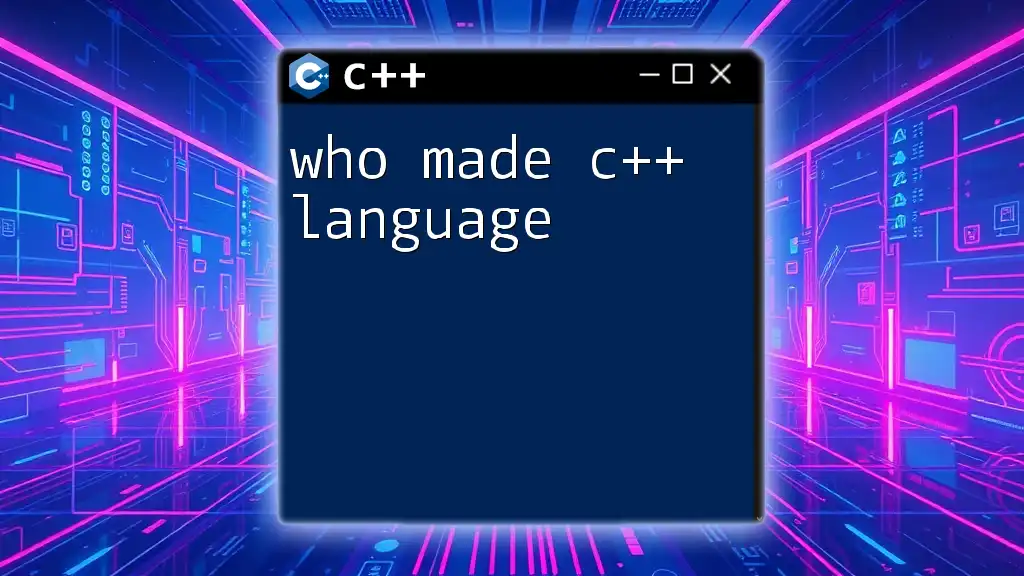
Core Differences between C and C++
Language Paradigms
Understanding the paradigmatic differences between C and C++ is key. C is fundamentally a procedural programming language, emphasizing a structured format where the focus is on the functions and procedures. In contrast, C++ embraces the principles of object-oriented programming, offering a way to structure programs around objects centered on data.
Syntax and Features
While the basic syntax of C and C++ is similar, there are critical distinctions. Consider the following examples to underline both languages' syntax:
A simple program in C:
#include <stdio.h>
int main() {
printf("Hello, World!");
return 0;
}
In this snippet, C uses `printf` from the `stdio.h` library for output. The main() function serves as the program's entry point.
The equivalent in C++:
#include <iostream>
int main() {
std::cout << "Hello, World!" << std::endl;
return 0;
}
Here, C++ uses the iostream library and the `cout` object for output, representing a higher abstraction level along with the use of standard namespace.
Memory Management
Memory management is another area where C and C++ differ significantly.
In C, programmers leverage pointers:
int* p;
p = (int*)malloc(sizeof(int));
*p = 5;
free(p);
In C++, the concept of references emerges, offering safer memory handling:
int n = 5;
int& ref = n; // ref is a reference to n
References ensure that developers avoid common pointer pitfalls.
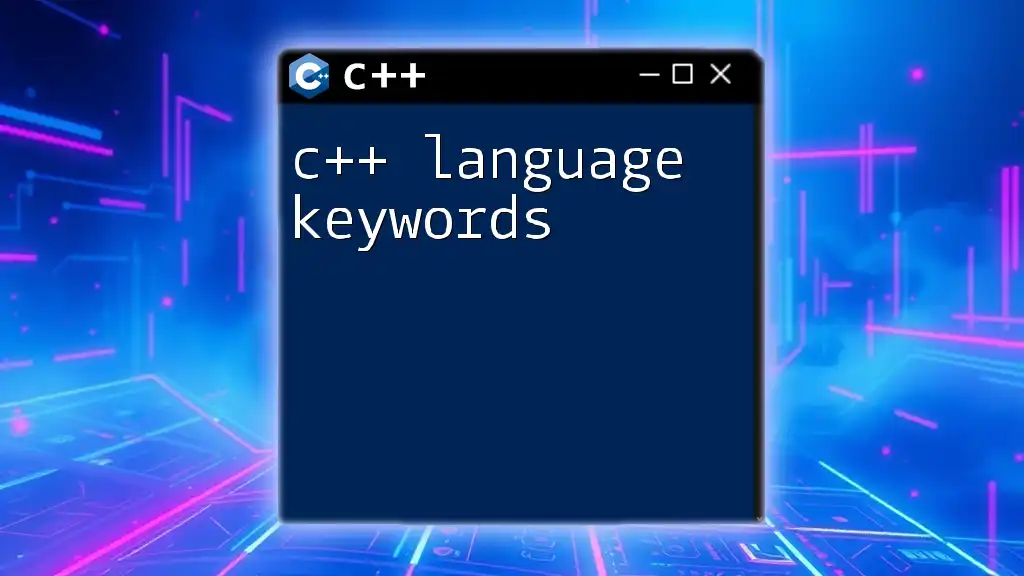
Features of C and C++
Fundamentals of C
C is known for its simplicity and efficiency. Programs are structured with basic data types, including `int`, `char`, and `float`. Control structures like conditional statements and loops play a crucial role in program flow.
Control Structures: For instance, a loop in C might look like this:
for (int i = 0; i < 5; i++) {
printf("%d ", i);
}
Key Features of C++
C++, in addition to procedural features, integrates OOP principles, allowing developers to create complex applications that are easier to maintain and extend.
Classes and Objects: Here’s a simple example of a class in C++:
class Animal {
public:
void speak() {
std::cout << "Animal speaks!" << std::endl;
}
};
int main() {
Animal myAnimal;
myAnimal.speak();
return 0;
}
The Standard Template Library (STL) is another critical aspect:
#include <vector>
#include <iostream>
int main() {
std::vector<int> numbers = {1, 2, 3, 4, 5};
for (int number : numbers) {
std::cout << number << " ";
}
return 0;
}
STL provides powerful and reusable components, enhancing productivity and reducing development time.
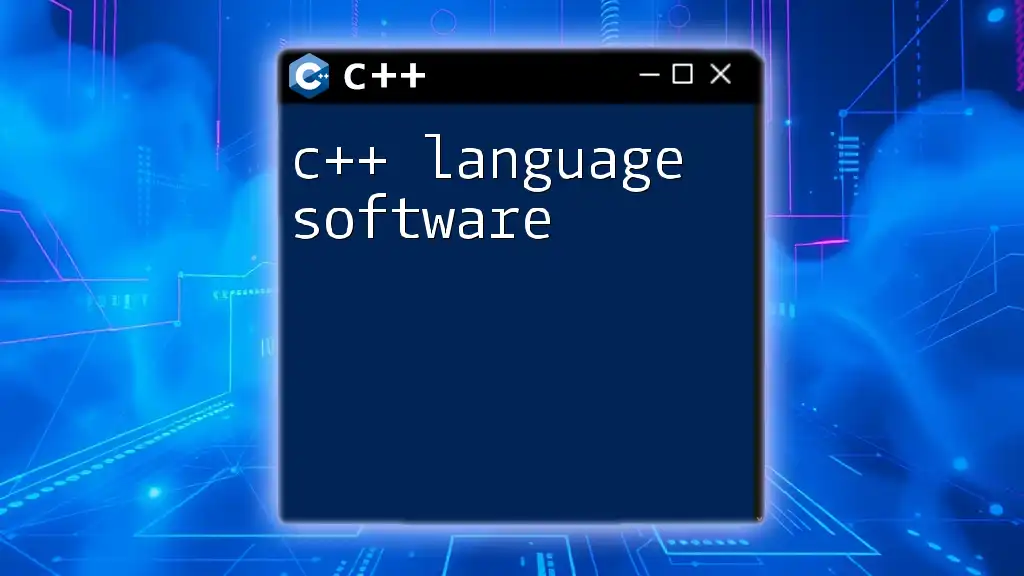
Practical Applications of C and C++
Use Cases for C
The C language is heavily used in systems programming where performance is crucial. For example, operating systems and embedded systems benefit from C's low-level capabilities, allowing for hardware-level manipulation and interaction.
Use Cases for C++
In contrast, C++ shines in areas demanding high-performance graphics and complex processing. For instance, many game engines like Unreal Engine are based on C++. Additionally, C++ is pivotal in industries such as finance and computer graphics, where real-time processing is essential.
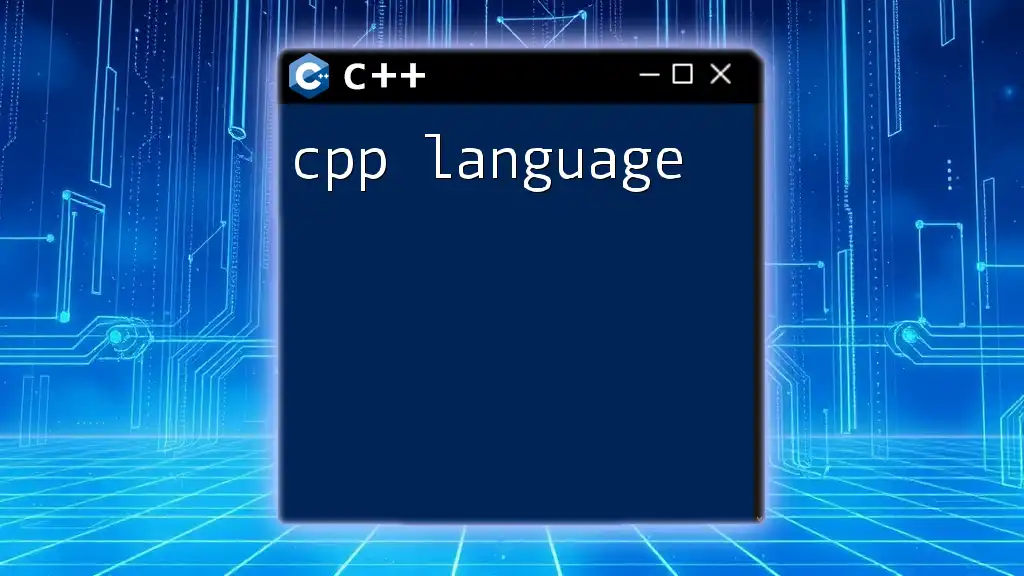
Best Practices and Guidelines
Writing Clean Code
When programming in C and C++, clean code is paramount. Consistently using comments to explain complex logic or functions can greatly improve code readability. Example:
// This function calculates the square of a number
int square(int n) {
return n * n;
}
Memory Management Techniques
Mastering memory management in C involves dynamic memory allocation with malloc and free, while C++ introduces `new` and `delete`:
int* array = new int[10]; // Allocate memory
delete[] array; // Free memory
Utilizing smart pointers in C++ (like `std::unique_ptr`) can minimize memory leaks.
Error Handling
Effective error handling is essential in both languages. C typically uses return codes to indicate errors, whereas C++ provides a robust exception handling model. In C++:
try {
throw std::runtime_error("Error occurred");
} catch (const std::exception& e) {
std::cout << e.what() << std::endl;
}
Using exceptions can help maintain cleaner code by separating error-handling logic from regular flow.

Conclusion
The C and C++ language ecosystem is vast and powerful, anchoring many advancements in modern technology. Understanding their historical context, differences, and practical applications can significantly benefit developers.
As software continues to evolve, both C and C++ remain relevant, powering everything from embedded systems to video games. A solid foundation in these languages can open doors to numerous career paths and innovative projects in the software development industry.
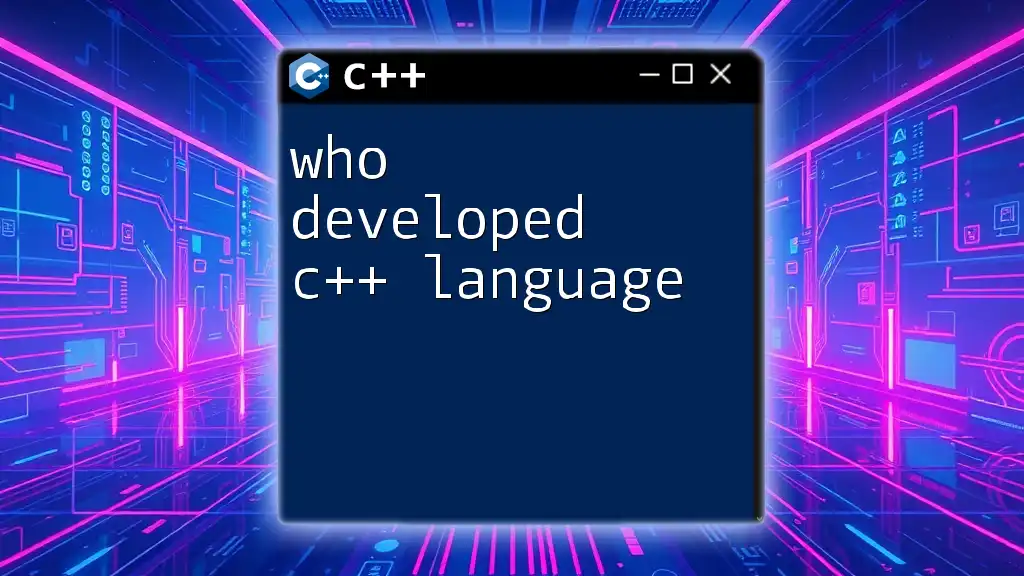
Additional Resources
Expand your mastery of C and C++ through various books and online courses, and engage in community forums to exchange knowledge and solve programming challenges. These resources will help you stay updated with the latest trends and techniques in C and C++.

